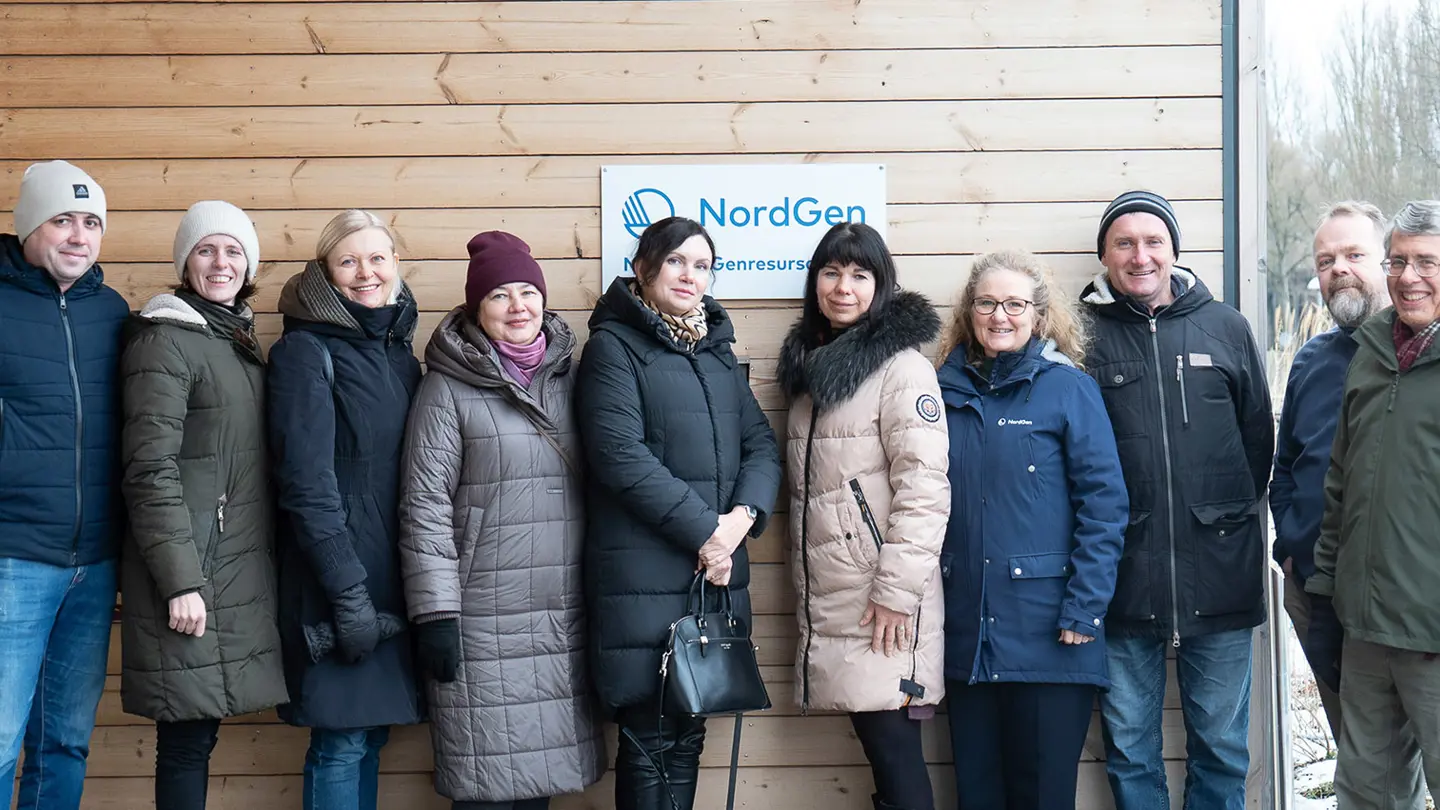
NordGen helps the Ukrainian national genebank to secure their invaluable seed collections from the war
Ukraine is often called the world’s breadbasket. Unfortunately, the Russian shelling of Kharkiv poses great risks not only for the people living there, but also for the national genebank’s seed collection – which is crucial for adapting the world’s food production to future challenges. As a backup seed storage is being established at a safer location in the west of Ukraine, NordGen has welcomed Ukrainian genebank colleagues to Sweden, to attend training sessions in data management systems and seed laboratory work.
Only a few weeks after Russia’s invasion of Ukraine, it was clear that there was an imminent risk of damage to the national genebank’s seed collection located in Charkiv. Along with other European institutions and support from the Novo Nordisk Foundation, NordGen coordinated emergency support to genebank already in the spring of 2022.
“After discussions with the genebank in Ukraine, it was decided that among their many needs we needed to prioritize according to the device ‘people first’. So, our initial response was to send money that covered salaries for the employees. But we also helped them buy diesel and a diesel generator to keep the seed freezers running through the power cuts”, says Lise Lykke Steffensen, Executive Director at NordGen.
After the initial phase, a major project coordinated by the United Nation’s Food and Agriculture Organization (FAO) helped the Ukrainian genebank to duplicate and move about the seed collection, from Kharkiv to the west of Ukraine, last spring. The current visit to NordGen and Sweden is part of a long-term plan for securing and developing Ukraine’s genebank and its invaluable seed collection. While here, the Ukrainians have gotten intensive training in GRIN Global, the data system NordGen and many other genebanks are using to store information about their seed collections.
“Although a backup facility for seed duplicates has been established and the seeds are safer for now, but the work isn’t done. We still need to update our data management system and build routines on the work done in the seed laboratory. The purpose with our visit to NordGen is to learn more about this”, says Kseniya Dokukina, IT-manager at Ukraine’s national genebank and one of the seven Ukrainians visiting NordGen.
In addition, the Ukrainians will receive both laboratory equipment and training in how to use it.
“These past days we have been showing them how we work in the seed lab. We are for example demonstrating how we use bar codes to connect the seed samples with information in the data system. They will also receive bar code printers to use in their new laboratory”, says Johan Axelsson, Head of the Seed Laboratory at NordGen.
Another part of the longterm plan is to send a second backup of the seeds to Svalbard Global Seed Vault. It might seem like much fuss for just some seeds, but fact is that these seeds are important not only for Ukraine’s food security – they are important for the entire world. The traits they carry are in many cases unique and are needed to adapt agriculture to climate change, new pests and diseases or other unforeseen challenges.
“Genetic resources know no country borders and doesn’t care about conflicts. But they are crucial for human life on earth. Right now, the loss of biodiversity is happening at unprecedented speed, and we must do what we can to hinder any further loss. Work in genebanks are specialized work and small communities. We are therefore happy to help our colleagues in Ukraine in any way we can”, says Lise Lykke Steffensen, Executive Director at NordGen.
